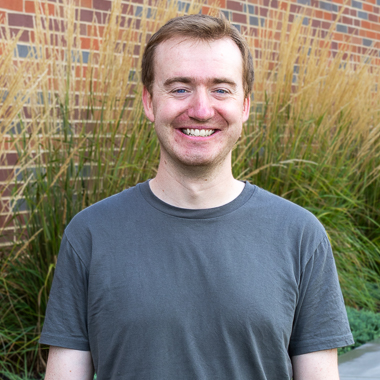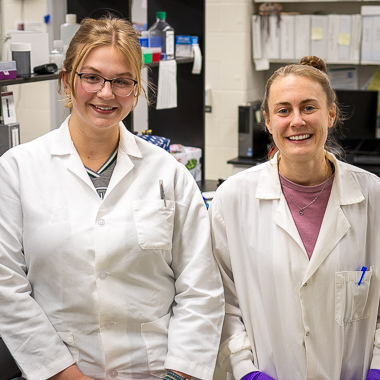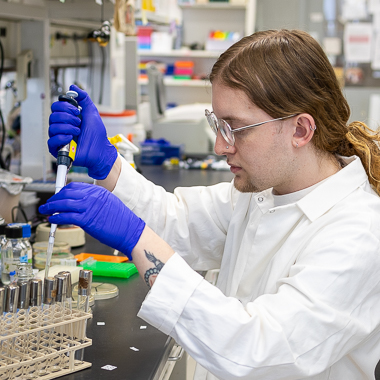Abigail Lippert Presented at International Ecological Society of America Conference
A Michigan State University student recently presented research at the International Ecological Society of America meeting. Abigail Lippert, an undergraduate student in the Department of Microbiology, Genetics, & Immunology, or MGI, traveled to Long Beach, Calif., with support from MGI.
Lippert has spent the last two years working as a lab researcher for MGI Assistant Professor Nina Wale. Dr. Ashwini Ramesh, an MSU Presidential Postdoctoral Fellow in Wale’s lab, mentored Lippert’s research.
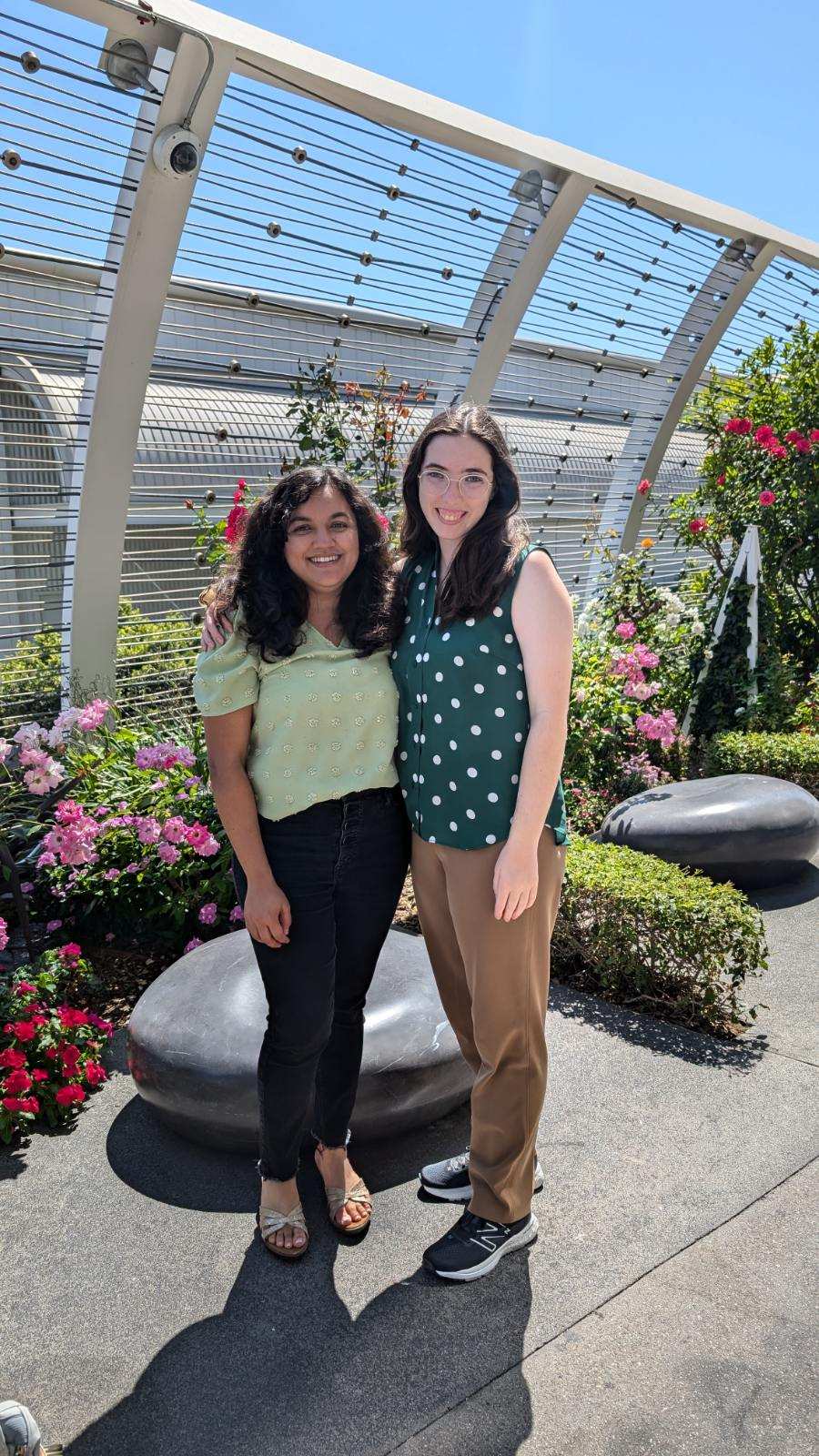
Lippert’s research focuses on the ways pathogens and parasites interact with their hosts and the surrounding environment, a field known as disease ecology. Specifically, Lippert is working to understand more about Daphnia, little crustaceans which are one of several aquatic crustaceans known as water fleas. Daphnia is frequently used as a model organism in Disease Ecology.
“We infect Daphnia with a parasite, and then we look at how their life changes based on infection," Lippert said.
Lippert is also investigating how varying the phosphorus levels in the Daphnias’ food impacts their foraging behavior and infection dynamics.
By examining how changes in food quality influence the foraging rates of infected and uninfected individuals, Lippert hopes to better understand how nutrient availability impacts parasitic infections in aquatic ecosystems.
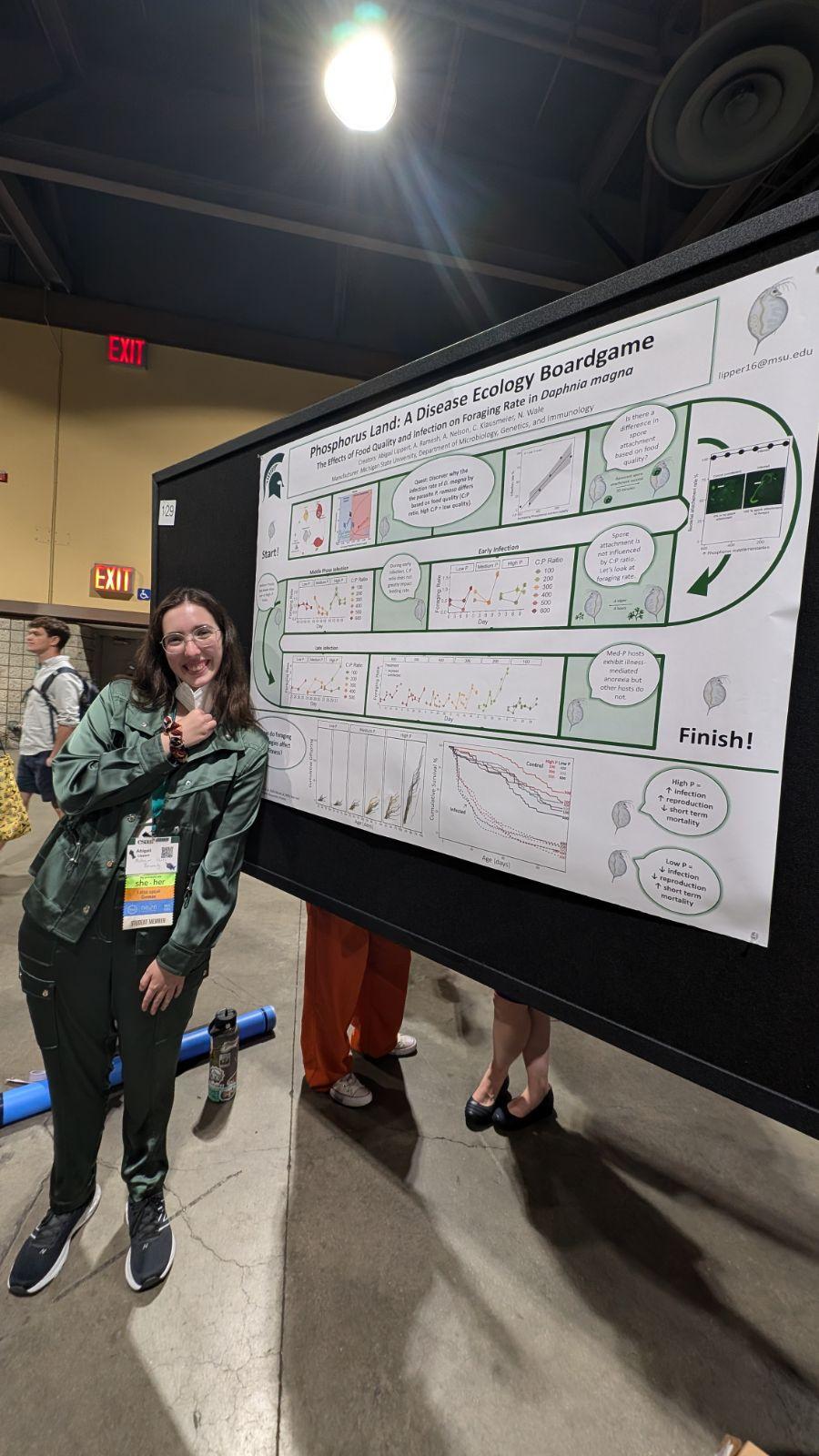
“From my perspective, this research is vital because it not only addresses gaps in current ecological and health knowledge but also provides a framework for understanding how environmental changes can influence disease transmission and outcomes,” Lippert said. “Ultimately this will contribute to more effective public health strategies and ecological management."
“Abigail creatively designed her poster as a ‘Disease Ecology Board Game’ to engage her audience. This unconventional approach drew a diverse crowd, sparking insightful discussions,” Ramesh said. “As a mentor, I was impressed and heartened to see Abigail proactively networking, participating in workshops and maximizing the opportunities presented during the five-day event.”
Despite initially feeling somewhat alone, Lippert seized the opportunity to connect with fellow attendees. Over the course of the week, she made a concerted effort to engage with others, leading to meaningful connections and friendships.
“On presentation day, I felt nervous but chose to focus on the joy of sharing the research and the experience of presenting, especially as an undergraduate,” Lippert said. “I’m so grateful that I got this opportunity, and I can’t thank my mentor enough. Ashwini pushed me to apply for the conference, and I learned about a lot of things I would have never even thought about.”
Lippert expressed that the experience significantly enhanced her networking and communication skills. She found the conference inspiring and was intrigued by the passion of fellow attendees.
“This experience was invaluable for connecting with others in my field and enhancing my ability to communicate my research. Attending such a large conference was truly inspiring, as I met many passionate individuals dedicated to science,” said Lippert. “This opportunity has deepened my connection to the broader ecology community.”
